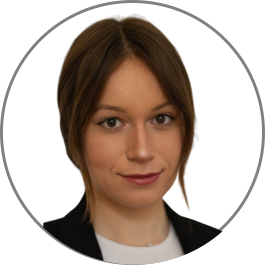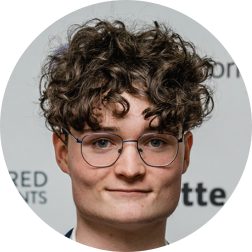Joint Honors Moderatorship
Is this course for me?
The general structure of the programme provides for students with a deep interest in two areas, and both subjects are studied equally for three years. Either one or both subjects may be studied in the final (Senior Sophister) year.

Studying Maths and Economics at Trinity has been an incredibly enjoyable and rewarding experience. The breadth of modules offered by the School of Maths has allowed me to explore my interests across pure mathematics, statistics and programming. The lecturers are highly knowledgeable and supportive and the coursework has consistently challenged me to reach my full potential.
What set this course apart for me is the opportunities it provided. During my time at Trinity, I completed internships across finance and technology, worked on publishing my final year thesis and applied my quantitative skills through my involvement in the Student Managed Fund. I am confident that the academic and practical foundation I have gained at Trinity will be invaluable after I graduate.

I’m doing Joint Honours with Economics, which keeps things varied. Having that math background helps me approach Economics differently, and I like the balance. In later years, I’ll get to specialize more, which I’m looking forward to, and also have an opportunity to go on International Exchange or Erasmus, which is an exciting prospect. The course gives you more freedom as you progress, which is great-you build your understanding and then get to dive deeper into what interests you. For now, though, I’m just enjoying the challenge of studying something I’ve always loved.
Course overview
Special entrance requirement: H3 in Leaving Certificate Mathematics at Higher Level.
Within the Joint Honors programme, mathematics may be combined with Economics, Modern Language (German, Irish, Italian, Russian, Spanish), Music, or Philosophy.
This option would be particularly suited to those who are equally adept at say, Music, as well as mathematics and prefer the variety of two subjects to the more intensive study of one. But with Economics and Philosophy, many students take mathematics because its study contributes to their understanding of the other subject.
Course Content: Mathematics with Subjects other than Economics
- Year 1:
- modules in Algebra, Analysis and advanced calculus
- Year 2:
- modules in Algebra, Analysis and a more applied topic of Mathematics (such as Computational Mathematics or Statistics)
- Year 3:
- students have considerable choice of modules in a range of mathematical topics
- Year 4:
- (if applicable) students again choose their modules from a wide range of options, in Pure Mathematics, Applied Mathematics, Statistics and computational or numerical methods
Course Content: Mathematics with Economics
- Year 1:
- modules in Algebra, Analysis and advanced calculus (combined with modules in Economics, Statistics)
- Year 2:
- modules in Algebra, Analysis, and Statistics
- Year 3:
- modules in Mathematical Economics and a considerable choice of modules in a range of mathematical topics
- Year 4:
- (if applicable) students again choose their modules from a wide range of options, in Pure Mathematics, Applied Mathematics, Statistics and computational or numerical methods
Please address any queries to the School of Mathematics (email: undergrad_maths@tcd.ie or tel: (01) 896 1949).
Course Modules
Learning outcomes
Students who have successfully completed the Moderatorship will be able to:
- Demonstrate a competence in formulating, analysing and solving problems in several core areas of mathematics at a detailed level, including analysis, linear algebra, abstract algebra, and at least one of the following: statistics, probability or applications of mathematics.
- Demonstrate an advanced and fundamental understanding of at least one advanced mathematical topic, including the ability to solve problems related to that topic using appropriate tools and techniques.
- Communicate clearly in writing and orally knowledge, ideas and conclusions about mathematics, including formulating complex mathematical arguments, using abstract mathematical thinking, synthesising intuition about mathematical ideas and their applications.
- Advance their own knowledge and understanding of mathematics and its applications with some degree of autonomy.


